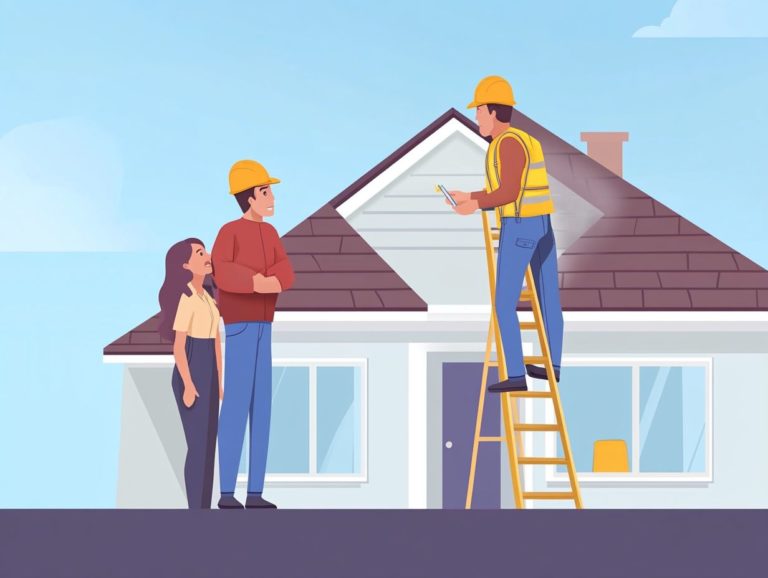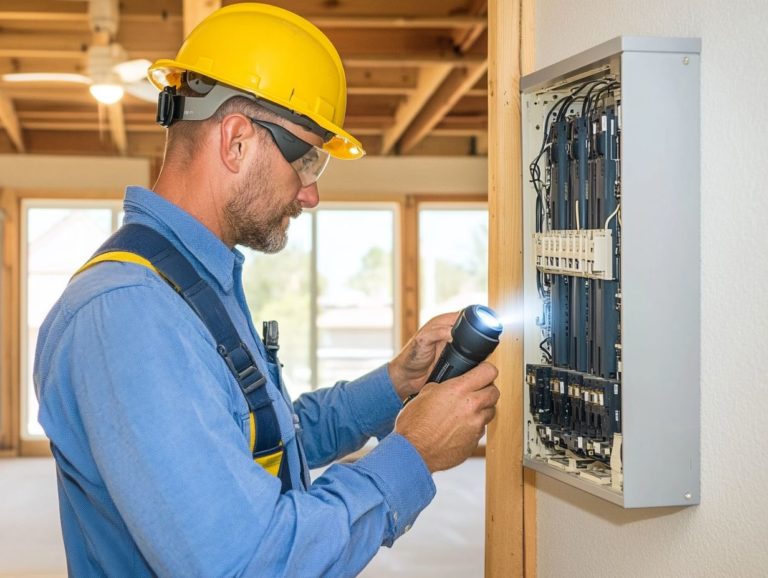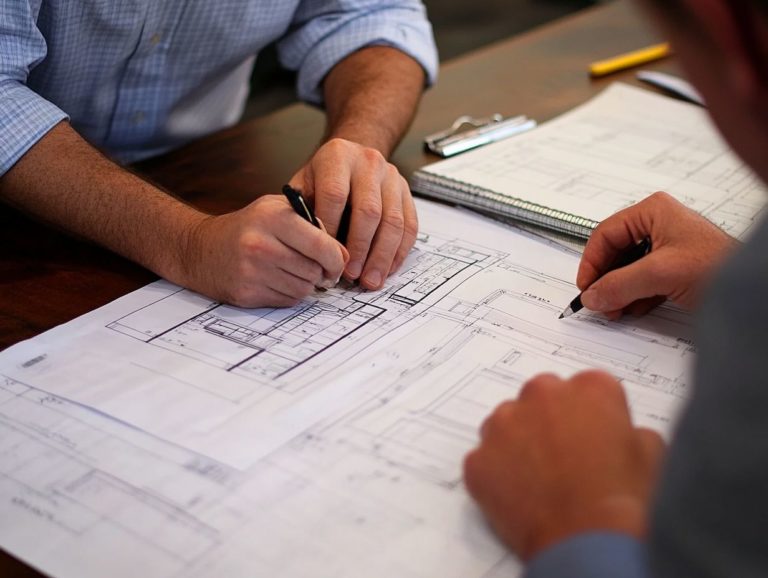The Importance of Home Inspections for Property Investors
When you venture into the realm of real estate investment, grasping the intricacies of home inspections becomes essential. These evaluations unveil the property’s current condition, empowering you to make informed decisions that can save you both time and money.
This article delves into what home inspections involve, their importance for property investors, and what you can expect during the process. It also highlights common issues that may arise, provides guidance on selecting a reliable inspector, and explores the financial implications of these inspections.
Prepare to elevate your investment strategy!
Contents
- Key Takeaways:
- What is a Home Inspection?
- Why Home Inspections are Important for Property Investors
- What to Expect During a Home Inspection
- Common Issues Found During Home Inspections
- How to Choose a Reliable Home Inspector
- Costs and ROI of Home Inspections
- Frequently Asked Questions
- What is the importance of home inspections for property investors?
- What are the benefits of conducting a home inspection before investing in a property?
- How does a home inspection benefit property investors in the long run?
- Who should conduct the home inspection for property investors?
- Can home inspections help property investors avoid potential legal issues?
- Are home inspections only important for older properties?
Key Takeaways:
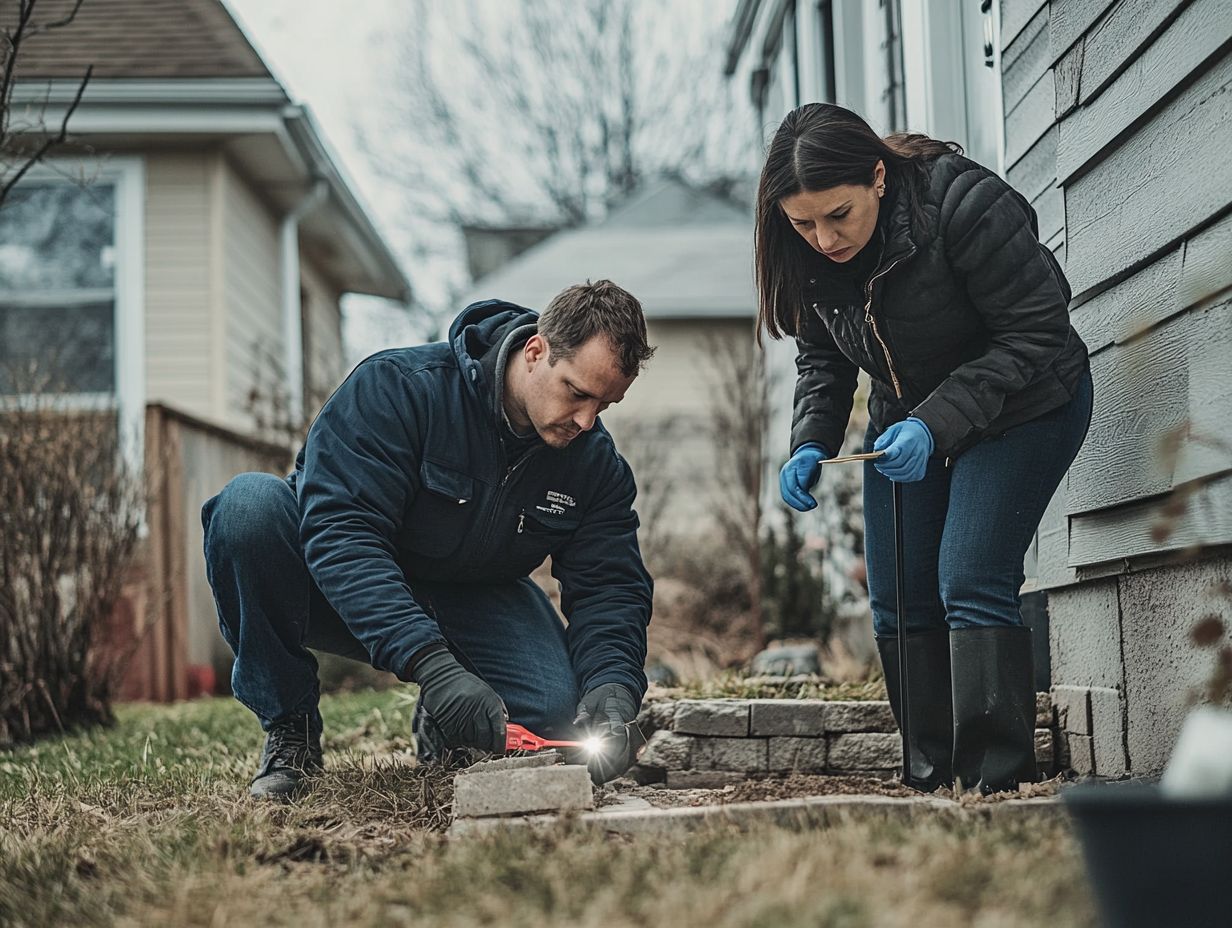
A home inspection is a detailed check of a property’s condition, examining its structure, systems, and parts to identify potential issues. For property investors, understanding the importance of pre-purchase home inspections is essential, as these inspections offer insights that help you better understand the investment. Choose a home inspector based on their qualifications, experience, and reputation to ensure a reliable inspection.
What is a Home Inspection?
A home inspection represents a detailed check of a property’s condition, usually carried out by a qualified professional inspector. This assessment delves into various components of the home, such as how well the structure is built, plumbing systems, electrical systems, HVAC systems, and adherence to safety standards.
The goal of this thorough inspection is to uncover any potential issues, structural concerns, or safety hazards that could impact the property’s value and desirability.
For both home buyers and sellers, this process provides invaluable insights during the real estate transaction, making it a vital step that can make or break your deal.
Definition and Purpose
The primary purpose of a home inspection is to provide you with a comprehensive report detailing the property s condition. It pinpoints any potential repairs or safety concerns that deserve your attention before sealing the deal.
Grasping these findings is essential for you as a home buyer, seller, or real estate investor, as they can significantly shape the entire transaction process.
For you, the buyer, a thorough inspection can uncover hidden issues, enabling you to make informed decisions. If you re selling, this information lets you proactively tackle concerns, boosting your property s appeal. As an investor, you depend on inspection results to accurately gauge potential repair costs and spot opportunities for improvement.
Ultimately, these insights are invaluable in crafting negotiation strategies, ensuring that everyone involved reaches a fair market value that truly reflects the property’s condition.
Why Home Inspections are Important for Property Investors
Home inspections hold paramount importance for property investors, offering invaluable insights into the condition of a property while highlighting the importance of home inspections for property investors that could affect investment returns and overall desirability.
By committing to a comprehensive inspection, you gain a clearer perspective on the property s structural integrity, safety hazards, and essential maintenance tasks. This knowledge enables you to make informed decisions, enhancing your negotiation leverage in buyer-seller discussions.
This proactive approach also helps in formulating a realistic renovation budget, clarifying repair costs, and ultimately fostering effective financial planning and robust risk mitigation strategies.
Benefits for Real Estate Investors
Real estate investors like you can unlock a wealth of benefits by conducting home inspections. Understanding the importance of home inspections enhances your negotiation strategies, reduces repair costs, and elevates your overall property management.
By harnessing the insights gained from thorough home inspections, you significantly boost your negotiating power, often resulting in better purchase prices or favorable seller concessions. For example, studies reveal that 77% of buyers who opted for home inspections managed to secure a reduction in their purchase price thanks to issues that were uncovered.
Identifying hidden defects early be it structural weaknesses or outdated electrical systems enables you to make proactive repairs, saving you money and preventing larger, more expensive problems in the future. This proactive approach not only contributes to a healthier return on investment but also underscores the undeniable value of meticulous property evaluations.
Don’t wait to inspect securing a great deal hinges on these findings!
What to Expect During a Home Inspection
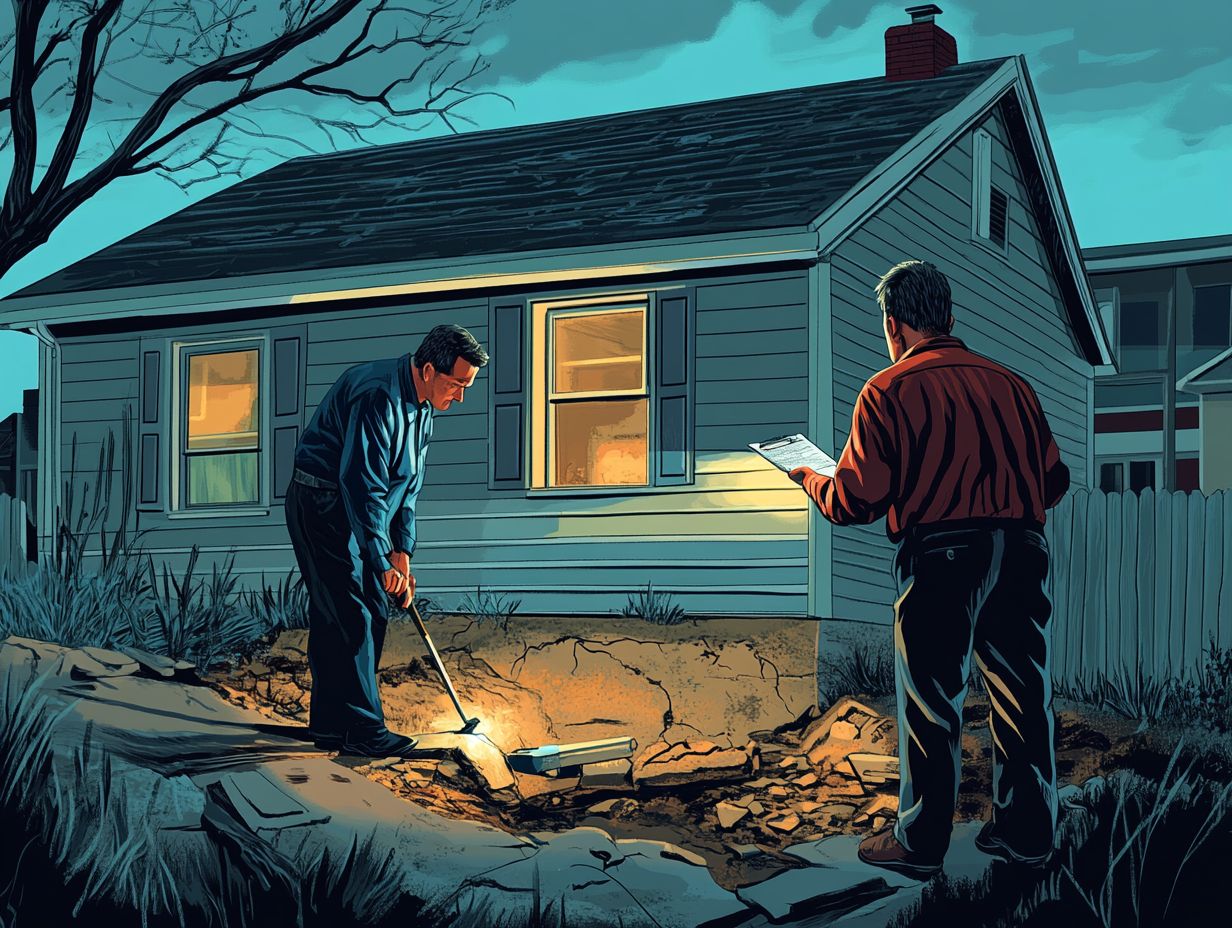
During a home inspection, you can anticipate a meticulous step-by-step process carried out by a trustworthy inspector. They will assess various critical systems and components of the property, covering everything from the roof to HVAC systems and plumbing.
This thorough evaluation identifies potential issues that could impact the home’s value or safety. After the inspection, you will receive a report summarizing the inspector’s findings, which may highlight structural concerns, mold issues, and electrical hazards.
This ensures you are well-informed and equipped with essential knowledge for making confident purchasing decisions.
Step-by-Step Process
The step-by-step process of a home inspection unfolds through several key stages. It begins with the initial assessment and ends with a clear final report that reveals critical insights into the property s condition.
In the early phase, the inspector examines the exterior elements, including the roof and foundation, looking for signs of wear and potential issues.
As they transition indoors, the focus shifts to plumbing, electrical systems, and major appliances. They ensure everything operates safely and efficiently.
Each evaluated area highlights immediate safety concerns and assists in estimating future repair costs. For home buyers, attending the inspection is highly advisable.
This enables you to gain firsthand understanding and ask pertinent questions. Engaging in the process fosters a clearer grasp of the property s condition, enabling you to make informed decisions about necessary repairs or negotiating terms effectively.
Common Issues Found During Home Inspections
During a home inspection, you may encounter various common issues, ranging from minor repairs to significant safety hazards. This underscores the importance of a meticulous inspection to pinpoint potential problems that could impact the market value of the property.
Some frequently observed concerns include:
- Mold
- Plumbing leaks
- Electrical hazards
- Structural issues related to the foundation or roof
Tackle these issues quickly to avoid future headaches! Neglecting these issues can lead to unexpected costs later.
Identifying Potential Problems
Identifying potential problems during home inspections is essential for assessing a property’s condition. It can reveal hidden defects that might lead to significant repair costs down the road.
Inspectors typically take a thorough look at various systems, including electrical, plumbing, roofing, and HVAC. They check for issues that can range from minor wear and tear to major structural concerns.
For example, while a small leak might seem insignificant, it can escalate into extensive water damage if left unchecked. Outdated electrical wiring not only poses safety risks but can also lead to higher energy expenses.
Addressing these issues proactively is crucial. Being aware of potential problems provides peace of mind, ensuring you make informed decisions about such a significant investment.
How to Choose a Reliable Home Inspector
Selecting a dependable home inspector is crucial for guaranteeing a comprehensive home inspection. Consider several factors, including the inspector’s qualifications, experience, and standing within the real estate community.
This careful consideration can make all the difference in your home-buying journey.
Factors to Consider
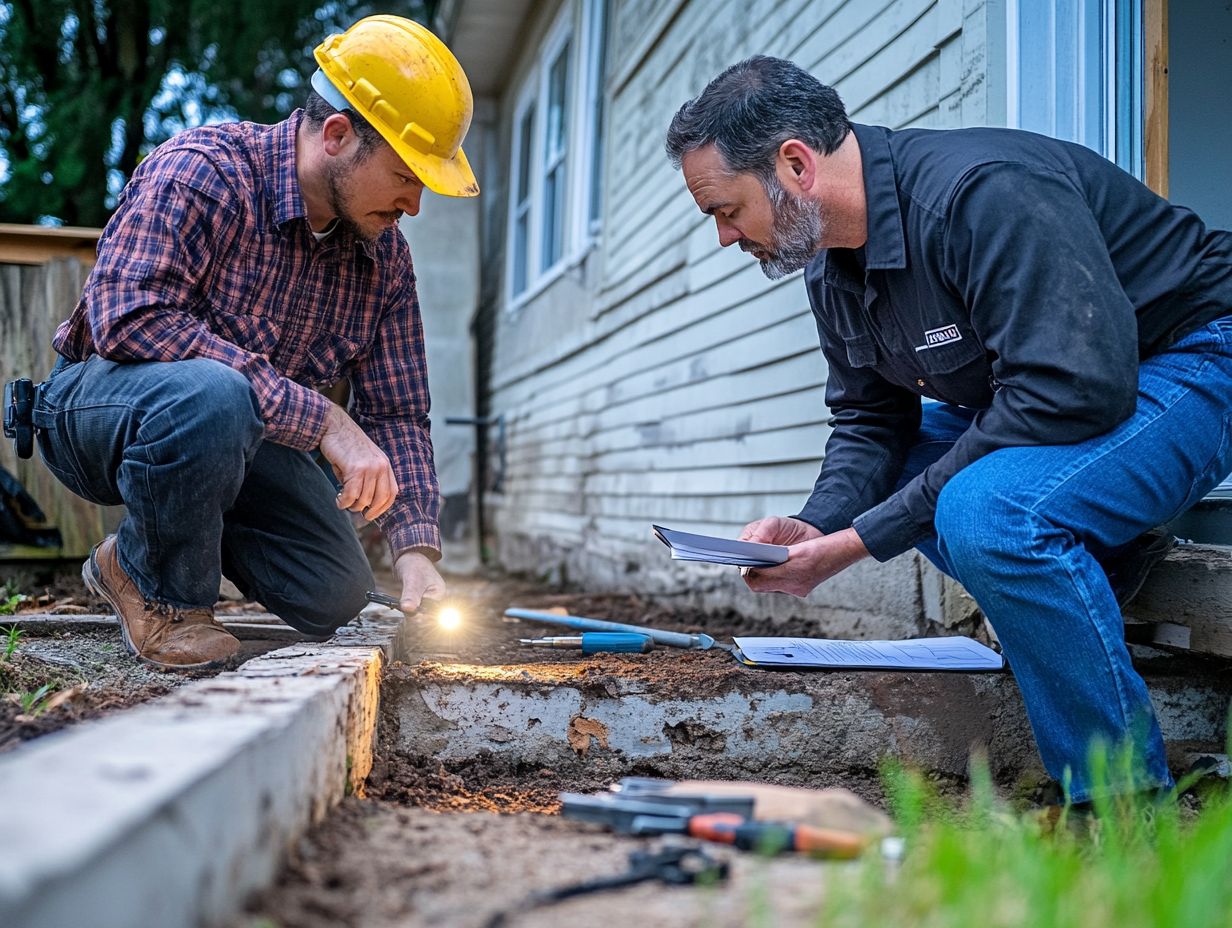
When selecting a reliable home inspector, consider several critical factors. These elements ensure the inspection process provides accurate and comprehensive insights into the property’s condition.
Prioritize the inspector’s qualifications and relevant experience; these credentials significantly influence the quality of the assessment you receive. It’s also wise to inquire about pricing structures. Transparency in fees helps you avoid unexpected costs later on.
Familiarity with local building codes and safety standards is essential. This ensures compliance and highlights any potential red flags specific to your area. Lastly, the inspector’s ability to communicate findings effectively is paramount.
A thorough explanation of the report enables you to make informed decisions. This guidance helps you navigate potential issues and solutions with clarity and confidence.
Costs and ROI of Home Inspections
Understanding the costs and potential return on investment (ROI) of home inspections is vital for both investors and home buyers. Home inspections usually cost only a small part of the total transaction expenses. However, they can uncover substantial savings by preventing unexpected repair costs and facilitating smoother negotiations.
Calculating the Value of a Home Inspection
To calculate the value of a home inspection, consider the potential savings from the issues it uncovers. This process plays a crucial role in negotiations and your overall investment strategy.
By weighing both the direct and indirect benefits of a home inspection, you gain a significant advantage in negotiations. Knowing about major repairs in advance helps you avoid costly surprises and enhances your investment security.
This evaluation helps you grasp both immediate expenses and long-term implications. It guides you to make strategic choices that protect your financial interests and strengthen your portfolio.
Frequently Asked Questions
What is the importance of home inspections for property investors?
Home inspections are crucial for property investors as they provide a comprehensive analysis of the property’s condition. This analysis identifies any potential issues or defects that could affect your investment. Understanding the importance of home inspections in real estate allows investors to make informed decisions and negotiate the best price for the property.
What are the benefits of conducting a home inspection before investing in a property?
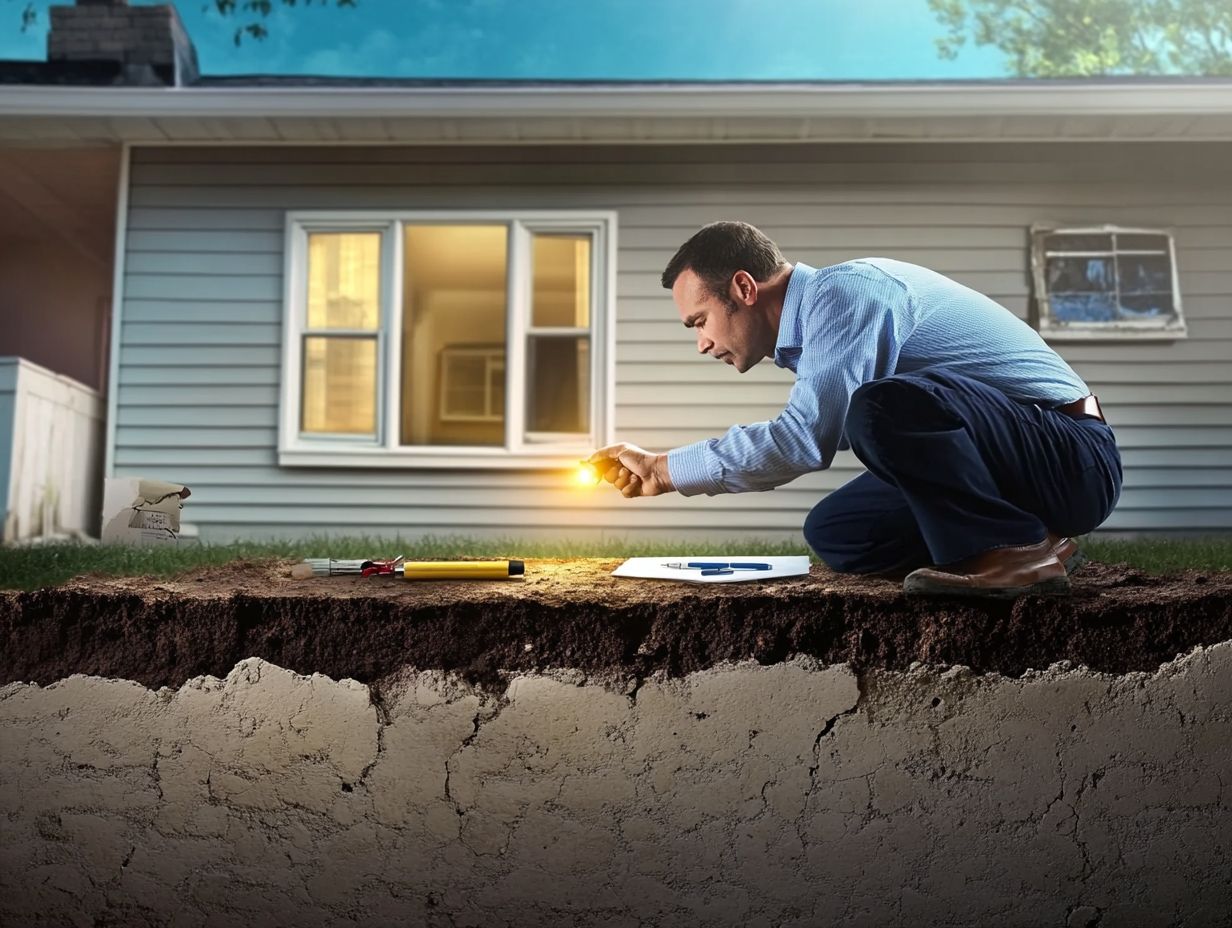
Home inspections can uncover hidden problems such as structural issues, electrical and plumbing defects, and other safety hazards. Understanding the importance of home inspections for real estate transactions saves property investors from making costly mistakes and helps them avoid future expenses.
How does a home inspection benefit property investors in the long run?
By identifying potential problems before investing, property investors can negotiate repairs or a lower purchase price. This ultimately saves them money in the long run. Additionally, understanding the importance of home inspections in real estate deals can help investors plan for future maintenance and repairs, ensuring the property remains in good condition and retains its value.
Who should conduct the home inspection for property investors?
It’s recommended to hire a professional and licensed home inspector to conduct the inspection. They possess the necessary expertise and experience to identify potential issues and provide a detailed report, highlighting the importance of thorough home inspections and helping investors make informed decisions.
Can home inspections help property investors avoid potential legal issues?
Yes, home inspections can help property investors avoid potential legal issues by identifying any code violations or safety hazards that could result in legal action. Additionally, understanding the importance of home inspections in real estate transactions provides documentation of the property’s condition at the time of purchase, which can be useful in case of any disputes.
Are home inspections only important for older properties?
No, home inspections are crucial for all types of properties, no matter their age. Even new homes can have hidden defects that a casual observer might miss.
A professional inspection ensures the property is in good condition. This step is vital before making an investment to protect your future!


